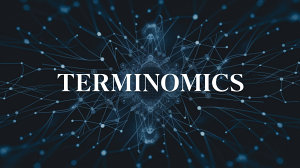Terminomics: A Framework for Universal Knowledge Systems
About this ebook
Core Principles of Terminomics
Systemic Knowledge Integration
Terminomics creates intricate networks of interconnected concepts, enabling seamless integration of knowledge across linguistics, science, mathematics, and philosophy. Each terminological unit maintains its precise meaning while contributing to a larger, recursive framework of understanding.
Hierarchical Organization
By carefully structuring terminological relationships, Terminomics establishes clear hierarchies that facilitate both top-down knowledge structuring and bottom-up cognitive construction. This organizational principle ensures consistency, clarity, and adaptability across all levels of knowledge representation.
Key Features of the Framework
Terminological Standardization → Establishing a universal system for term relationships and classification
Hierarchical Knowledge Mapping → Defining structured layers of meaning across disciplines
Interdisciplinary Connectivity → Ensuring seamless cross-domain integration through a unified system
Recursive Structuring → Enabling AI-driven learning, linguistic optimization, and systemic adaptation
Terminomics represents a groundbreaking approach to organizing and standardizing knowledge, ensuring that each terminological unit remains coherent, scalable, and universally applicable. By integrating linguistic singularity, scientific classification, mathematical formalism, and philosophical reasoning, Terminomics provides a structured foundation for universal knowledge organization and interdisciplinary standardization.
About the author
Ronald Legarski is a visionary systems architect, linguistic theorist, and interdisciplinary researcher, specializing in terminological standardization, recursive knowledge structuring, and universal information frameworks. As the Founder of SolveForce and Co-Founder of Adaptive Energy Systems, Legarski has been instrumental in developing scalable, recursive models that unify knowledge systems, linguistic categorization, and AI-driven intelligence structuring.
As the creator of Terminomics, Legarski introduces a revolutionary knowledge framework that integrates terminological hierarchy, interdisciplinary connectivity, and recursive intelligence structuring into a unified system of knowledge organization. His research explores AI-driven taxonomy modeling, blockchain-secured scientific standardization, and hierarchical linguistic processing, ensuring continuous optimization of structured information networks.
With expertise spanning computational linguistics, artificial intelligence, formal logic, scientific classification, and philosophical structuring, Legarski's work redefines knowledge systematization through recursive, scalable frameworks. His leadership in Adaptive Energy Systems applies Terminomics principles to AI-powered semantic intelligence, interdisciplinary data structuring, and quantum-assisted taxonomic validation, while SolveForce continues to drive telecommunications, decentralized knowledge processing, and AI-driven lexicon structuring.
Through his research, writing, and technological innovations, Ronald Legarski pioneers a recursive, structured framework for terminological standardization, ensuring universal knowledge integration, systemic coherence, and interdisciplinary linguistic organization. His vision for Terminomics establishes the foundation for the next era of knowledge mapping, semantic AI, and structured linguistic intelligence, creating a recursive, universally applicable system where every term, concept, and discipline is systematically interconnected.







